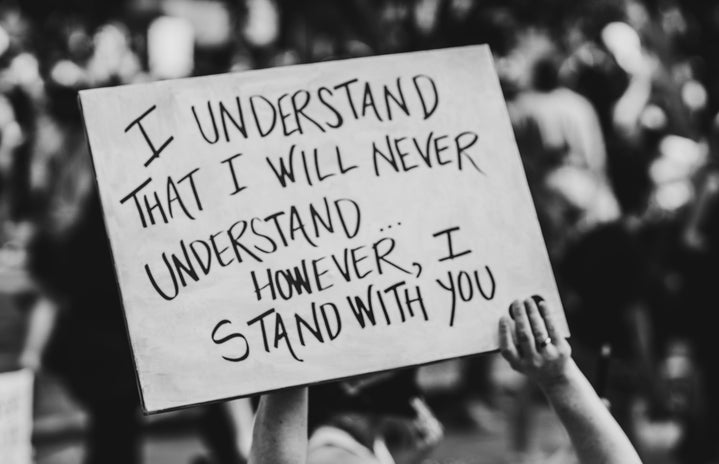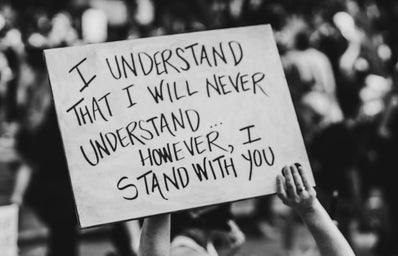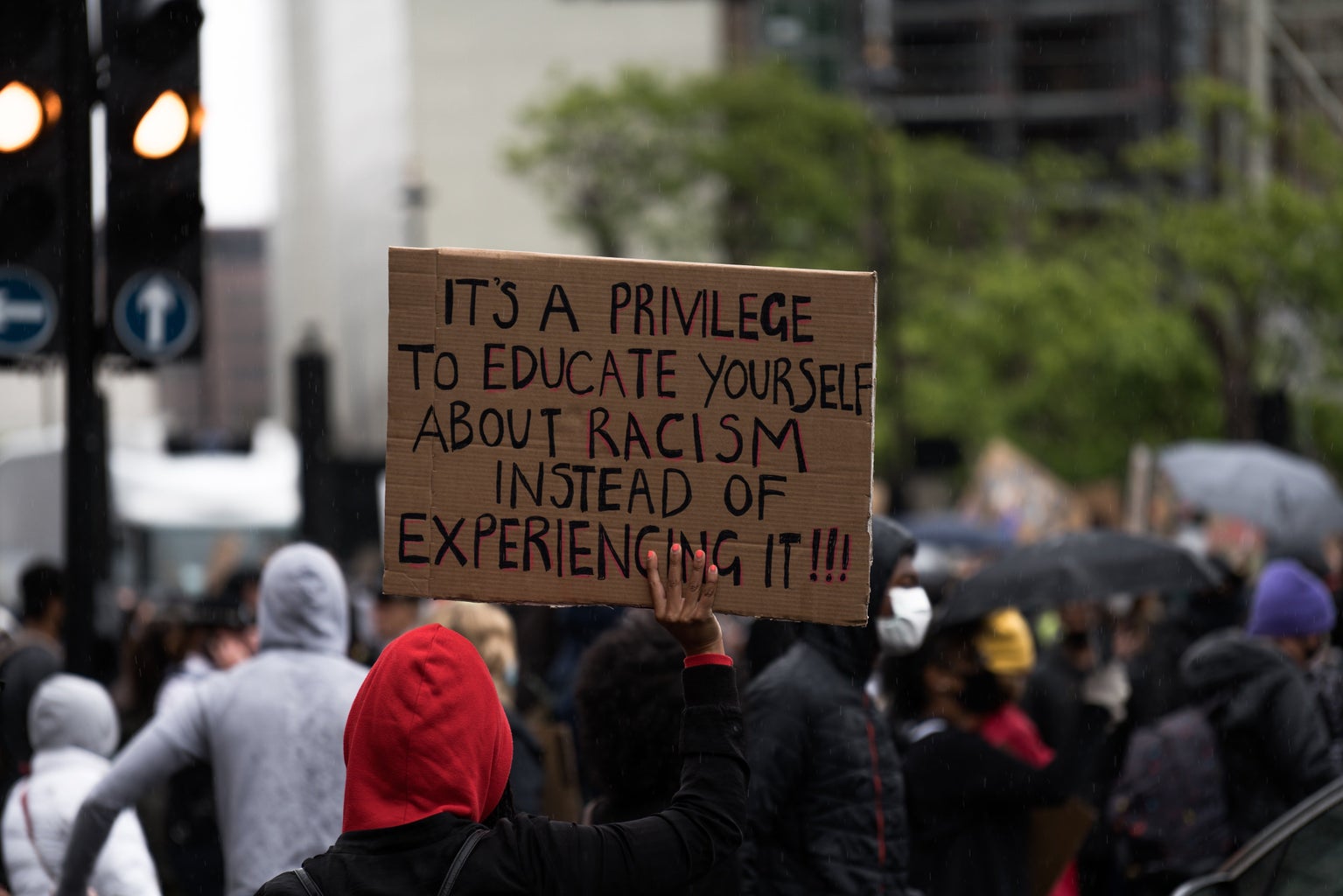I know what you are thinking—what is “dealing” with privilege? Doesn’t the word privilege itself mean you don’t have to “deal” with anything at all? The definition of the word privilege, according to my good friend Google, is “a special right, advantage, or immunity granted or available only to a particular person or group.” If one has a societal advantage, whether that be their socioeconomic status, race, gender, etc., life doesn’t provide you with an overarching challenge to deal with, because you’re afforded many more opportunities than those who aren’t. Therefore, I don’t want to talk about how to deal with privilege, because it’s easy. It’s easy to stay in your bubble and pretend that those who weren’t afforded the same luxuries in life as you don’t exist. It’s easy to cling to your privilege as if you, or anyone, inherently deserves it. Instead, I want to talk about how to deal with the discomfort that comes with being advantaged so much in a world that deprives so many of basic opportunities. And more importantly, I want to talk about how the privileged can use their advantages to stand up for those who have been overlooked in society.
I want to point out that I am privileged. I am a 20-year-old upper-middle-class straight white woman from suburban Virginia. I never in my life had to worry about where my next meal would come from, or how I was going to pay rent. I’ve never been treated differently based on the color of my skin or who I love. Even college was a no-brainer for me. As I’m getting older and more educated, I have become increasingly aware of the contrast between my life and the lives of others. And although I’m endlessly grateful for the blessings in my life, with that awareness comes an uncomfortable dissonance—and even guilt. It has caused me to ask questions like, How come I was born into a financially secure family while others weren’t? Why is my sexuality acceptable while others are shamelessly murdered for theirs? What did I do to deserve an easier life than others? These questions shine a light on my privilege and bring up feelings of guilt and even selfishness, especially in the era of pivotal societal movements such as Black Lives Matter and third-wave feminism. However, it’s movements like these that offer up opportunities to use privilege to help fight for the marginalized that are already leading the fight for their lives.
Ignorance can’t and never will be bliss. Uneasy feelings associated with having privilege are a good thing. Feeling uncomfortable with your place in a world that is largely unfair to others can inspire people to do something about it. The socially privileged have a responsibility to help elevate the disenfranchised, and I think that that is a beautiful responsibility to have. And the thing is, we have a ton of opportunities to do so. It’s important to be proactive through donating to and protesting with activist organizations that inspire you; however, it is equally important to listen, learn, and educate others on privilege and the marginalization of American populations. This isn’t to say that those with privilege may speak on behalf of minorities because we can’t pretend to know the struggles they face. Instead, we must acknowledge that privilege and lack thereof do factor into many aspects of life for all people. Remembering that may allow us to remain aware of what can be done to challenge the tangible inequities we see in our daily lives that come with this concept of privilege. I challenge my readers to think about ways in which privilege has affected their lives. How have you benefited from a system that works for you? What if that system didn’t work for you like it does not work for so many others? And lastly, how will you use your mind, heart and, yes, privilege to advocate for a more equitable society?



